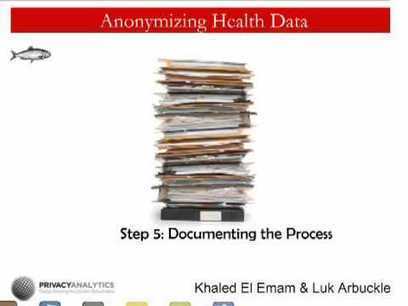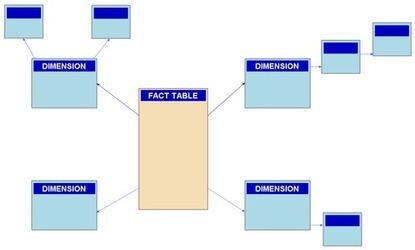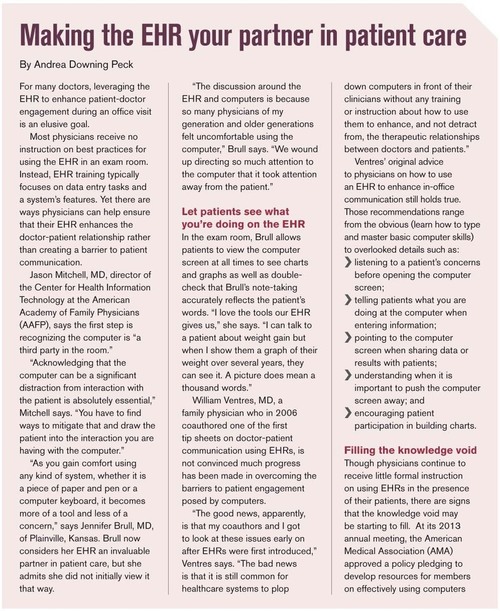See on Scoop.it – News stories related to the EHR and Research

“@Oka_Bi_David: Plenty of debate here too! My 3 Data De-identication / Re-Identification Health #Privacy essays here: http://t.co/o1ucGCqj2X
Glenn‘s insight:
Very detailed view in the re-identification issue. This is a 3rd part of a series.
See on blogs.law.harvard.edu
Posted by Scoop.it Editor on January 29, 2014 at 8:56 am under Uncategorized.
Comment on this post.
See on Scoop.it – News stories related to the EHR and Research

How can health data be released to analysts and app developers who desperately want it? Under current legislation, the use and disclosure of health data for …
See on www.youtube.com
Posted by Scoop.it Editor on January 22, 2014 at 7:49 am under Uncategorized.
Comment on this post.
See on Scoop.it – News stories related to the EHR and Research

Nearly half of all hospitals now have data repositories, says HIMSS Analytics. Buying plans for next five years include warehousing, patient portal, and radiology barcoding apps.
Glenn‘s insight:
I’m surprised that only 45% of hospitals have a data warehouse of some sort. I wonder if the main constraint is the difficulty in obtaining and extracting out the meaningful data from current EHR systems (or the lack of).
See on www.informationweek.com
Posted by Scoop.it Editor on January 22, 2014 at 7:46 am under Uncategorized.
Comment on this post.
See on Scoop.it – News stories related to the EHR and Research

As data in healthcare becomes more exposed, providers must look beyond the EHR to see what is really behind the “iron curtain. .
Glenn‘s insight:
Excellent article on the future of EHR and MPH population activity & research.
See on www.hitconsultant.net
Posted by Scoop.it Editor on January 16, 2014 at 1:31 pm under Uncategorized.
Comment on this post.
See on Scoop.it – News stories related to the EHR and Research

Patient engagement represents the next aim of healthcare reform through the adoption of health IT systems and services. It just received a boost from PCORI. (How does patient engagement transform into useful EHR data?
Glenn‘s insight:
The right perspective on getting patients not just involved with their own care, but going to the next level of ensuring that the patient is a part of the research being conducted. The picture gets more complex, but potential benefits all the greater.
See on ehrintelligence.com
Posted by Scoop.it Editor on January 15, 2014 at 6:20 am under Uncategorized.
Comment on this post.
See on Scoop.it – News stories related to EHR

Glenn‘s insight:
Wow! A $1 billion investment by IBM in its own Watson product sets the stage for some major competition regarding contextual data analysis in a number of very important markets.
See on www.kurzweilai.net
Posted by Scoop.it Editor on January 14, 2014 at 2:35 pm under Uncategorized.
Comment on this post.
See on Scoop.it – News stories related to EHR

Dr. Straub is a third-year Maternal-Fetal Medicine Fellow in the Department of Obstetrics and Gynecology, NorthShore University HealthSystem, Evanston, Illinois.
Dr. Silver is a Maternal (“@ahier: What’s missing from the #EHR?
Glenn‘s insight:
Two good articles in one!
To summarize EHR useage: garbage in, garbage out. Best to have good data going in to have more effective clinical outcomes and research potential.
See on contemporaryobgyn.modernmedicine.com
Posted by Scoop.it Editor on January 14, 2014 at 2:28 pm under Uncategorized.
Comment on this post.
See on Scoop.it – News stories related to EHR

One of the most important things to keep in mind when choosing an Electronic Health Records (EHR) vendor is market share. For one thing, if a vendor has a high market share, it means that many people chose to use it.
Glenn‘s insight:
Would be nice if the article could have included market share by individuals covered (checked source data, wasn’t there). But gives a good idea on the top vendors in the game and the huge necessity and effort for the ability to exchange data in some fashion for research purposes.
See on www.additiveanalytics.com
Posted by Scoop.it Editor on January 12, 2014 at 7:11 pm under Uncategorized.
Comment on this post.
See on Scoop.it – News stories related to EHR

From (“@Harvard: Statistical terms used in research studies; a primer for journalists http://t.co/TpolcDpQ1U via @JournoResource”)
Glenn‘s insight:
This isn’t exactly EHR/Research related, but I can only emphasize that one should print this out and tape it to the inside of their notebook! Great info for quickly going back and checking what a researcher is exactly saying or asking for in an analysis.
See on journalistsresource.org
Posted by Scoop.it Editor on January 12, 2014 at 6:36 pm under Uncategorized.
Comment on this post.
See on Scoop.it – News stories related to EHR

How VA Is Using Big Data to Keep Patients Out of the Hospital GovExec.com Both the scores and the assessment system draw from the 80 terabytes of patient statistics and other information collected in VHA’s corporate data warehouse, which sucks up…
Glenn‘s insight:
Easier done with controlled data like at the VA. Much more difficult in a more competitive environment with smaller data sets to work with. But the principle is great. In addition, one of the greatest challenges is having a clinical and/or billing-focused EHR available for epidemiological types of analysis across patient populations. Not a small endeavor!
See on www.govexec.com
Posted by Scoop.it Editor on January 10, 2014 at 1:13 pm under Uncategorized.
Comment on this post.









